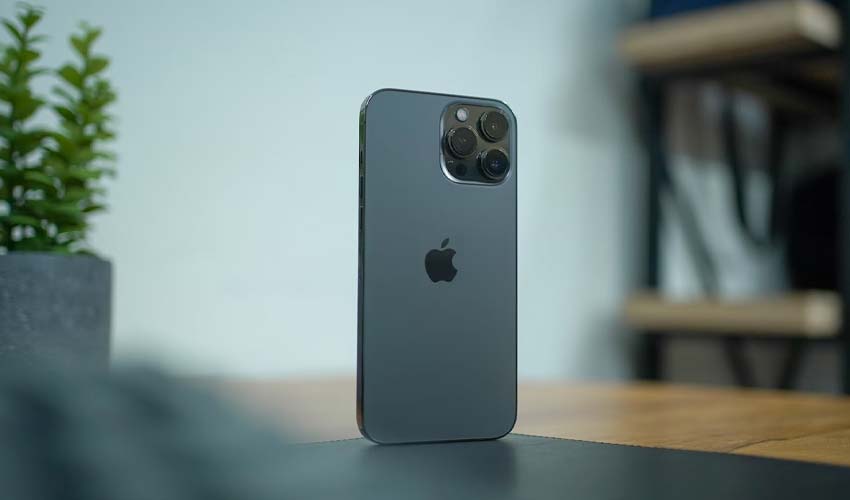Do you consider your career one of the best jobs for the future?
For some people, technological advancements could mean their jobs would be deemed obsolete.
Remember Britain’s knocker-uppers whose sole jobs were to wake people up with long wooden sticks “knocking” by the windows? Well, those jobs disappeared when everyone switched to alarm clocks instead of paying for this service.
Jobs like video store clerks, milkmen, switchboard operators, or movie projectionists have disappeared almost completely by now, while other jobs like file clerk and cashiers (have you seen those cashier-less Amazon stores?) are slowly being made obsolete due to advancements in technology.
Does the thought of being replaced by a machine, AI robot, or automation seem possible with your line of work? Or are you in high school thinking about the course to take or your would-be profession?
If so, this list of 12 in-demand jobs should give you an idea of what kinds of jobs to pursue (and which to avoid) and how to future-proof yourself in ANY industry.
12 Best Jobs for the Future
The following jobs for the future will cement you in the right direction financially, but they’re not the only ones. You can find your own niche within these careers. For example,
1. Video game designer, developer
Video games are a billion-dollar industry with annual revenue of $37 billion (in 2020), so it just makes sense to invest in video game development skills if you’re interested in gaming.
2. Mobile app and mobile game developer
Just like video games, the demand for mobile apps has no sign of stopping.
This is especially true for the mobile gaming market, which is responsible for over $77 billion in revenue in 2020 alone.
3. Chef, cook, bakers, and other jobs involving the creation of food
Robots cannot replace the creativity, patience, and skills chefs, bakers, and cooks have when it comes to preparing scrumptious food.
Even now, factory-manufactured food doesn’t come as close as handmade/homemade, warm food served fresh.
4. Data scientist
Data is used in everything these days.
From your favorite social media to your go-to shopping app, data is shared and stored every second. A data scientist analyzes any data, finds patterns, and figures out a way to use all findings to improve the platform, increase customers, and improve services/products based on data trends.
Just like other professions here, there are several sub-niches of data scientists you could branch out that are also as in-demand as data scientist jobs.
5. HR (Human Resources)
The job of HR personnel is becoming easier thanks to automated candidate screening, but real people perform the interviews and assessment of communication skills or emotional intelligence of applicants.
Because robots cannot read people (beyond heart rate and probably body temperature), they won’t be able to assess things like sincerity, emotions, and so on.
6. Fashion Designers
Like chefs, robots lack the creativity and passion to create pieces of clothing, jewelry, shoes, accessories, costumes, and other similar products.
Although it is possible for a robot to analyze data based on the kinds of clothes, shoes, jewelry, or accessories a specific market audience tends to buy, style isn’t something a computer can calculate.
7. Engineers
Out of all the jobs that might get outdated with technological advancements, engineering seems the most brutal.
Imagine building robots to perform a specific task, only for the same robot to be replacing you in the future. Fortunately, even if there are dozens of movies showing us this possibility, engineers will have careers for a long time.
Whether you’re taking up an engineering discipline that’s obviously going to be part of the future (such as robotics, or mechanical engineering), or sticking with a profession that has very little chance of being outdated (like architecture), you can breathe a sigh of relief.
The innovation many engineers bring into this world is unmatched and would take decades more for AI to get to an engineer’s level.
8. Social Media Marketer/Strategist
Traditional advertising may still work, but reaching a brand’s target market is quicker, more accurate, and less expensive on social media. This is why many companies are online directly interacting with their customers and would-be clients.
AI and automation can make a huge difference in marketing processes, but they can’t replace humans in analyzing data, trends, people’s reactions/aggrievances/feedback, and so on.
If you are involved in digital marketing, you have to be up-to-date with exciting trends to help your job. Rankbrain (the AI/machine learning tech behind Google’s search engine), or Klevu (to help eCommerce stores track, monitor, and upsell to customers and visitors) are just two examples of tech that could put you at the top of your digital marketing game.
9. Doctors, nurses, scientists, and other professions in the medical field
It is guaranteed that equipment, machinery, techniques, and tools used in the medical field will have new and exciting advancements to save lives, but many jobs in this field are off-limits to robotics.
Human interaction, empathy, observation, and communication skills are very important in medicine and any caregiving profession.
10. Creatives (writers, designers, musicians, urban planners, and so on)
Many jobs that rely heavily on the right side of the brain are safe, since creativity cannot be taught to a robot, or coded into a machine for automation.
Humans are unique because we can create works of art after looking at one piece and finding analogies, formulating metaphors, and then applying our own interpretations into a project or product.
A good example of this is the holographic Tupac, who was “brought back to life” to perform at Coachella 15 years after his death.
While the idea worked successfully, what remains to be true is that this holographic Tupac cannot create new music on its own.
11. Career Counselors/advisors
The good thing about technological advancements is that although jobs would become obsolete in the process, new jobs will be created as well.
If you’ve had over a decade working for a particular industry and feel lost at the prospect of starting a new career from scratch, you’d probably need the help of a career counselor.
He/she could help in assessing your skills and suggesting what possible jobs you can apply to based on your experience, skills, and preferences.
12. Teachers/Educators
Similar to career counselors, teachers and educators are going to be essential people in society in years to come.
Every time a new skill, course, technology, language, or any new knowledge is discovered or invented, educators can spread this knowledge to the next generation of learners interested in them.
Tips in Choosing the Best Jobs for the Future
Regardless of what job you decide to focus on, here are 5 tips you could follow to reduce your chances of being replaced by a bot or automation.
- Diversification is key. Even if you still have a job now, you can practice juggling two income streams. For example, you can start a small business, take up a work-from-home job so you can experience different fields every now and then. If you’re not ready to commit your weekends or full-time, you can check out other cool ways to earn side cash.
- Develop your Skills continuously. Don’t wait until technological advancements catch up to you and your skills suddenly become outdated. Make sure you are always up-to-date with new programs, techniques, tools, and other advancements within your field. If you have the time, expand beyond your industry as well, so you’d have more options if ever your job becomes a casualty of automation.
- Think Global. If you’re a carpenter or plumber, who has served your local community for decades, it’s understandable why you’re focusing your market within your reach. Think globally and find something else your skills could work on (example: teach carpentry on YouTube). This way of thinking could open up a lot of opportunities, especially if your job is something you can do anywhere (such as that of an accountant, programmer, writer, researcher, and so on).
- Don’t be afraid of Tech. Yes, technology can potentially make your job obsolete, but this shouldn’t be the reason to sway away from tech. Be informed by technological advancements within your field. If you’re a doctor, make sure you know the latest medicine, AI-assisted tool, and other upgrades that could help your job. Instead of being scared of it, take advantage of technology and be prepared for the future.
- Pick a job from a growing sector. If you’re on the hunt for a new job, whether you’re new to the workforce, or you’re worried about your traditional job becoming automated, it is ideal to find a profession from a growing sector.
Make Your Own Future
If your job right now isn’t included on my list of the best jobs for the future, don’t worry. You are still the captain of your own ship. Make your own future based on the growing sectors and tips I listed above.
You can even mix two professions such as mobile app design with teaching to create your own educational app or learn culinary while working as a social media analyst. Or set up your own online business, while keeping your engineering job. You get the point.
As long as you keep on learning, you’ll always have a space for the future, even if it means our future would have robots and automated-everything in it.







